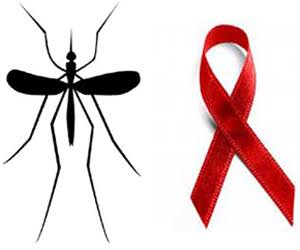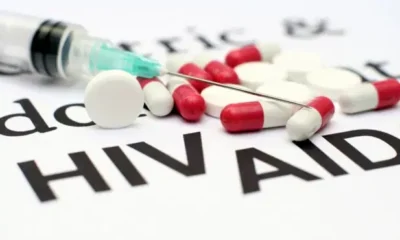The Nation
Nigeria receives $933m grant to combat Malaria, HIV

The Global Fund’s Grant Cycle 7 has allocated $933 million to Nigeria to combat HIV, tuberculosis, and malaria from 2024 to 2026.
Of this, $340,095,438 is allocated to HIV grant, with the National Agency for the Control of AIDS getting $10,663,394 to oversee the coordination of the multisectoral HIV response.
NACA made this known on Friday in a press statement signed by its Head of Public Relations and Protocol, Toyin Aderibigbe.
To kick off the GC7 grant, the statement noted that a four-day retreat was held for the newly formed Project Monitoring Unit.
The retreat was designed to familiarise the new team members with their roles, reflect on past successes, identify areas for improvement, and discuss actionable strategies for future endeavours.
In her welcome remark, the Director General of NACA, Dr Temitope Ilori, highlighted the significant accomplishments of the GC6 grant.
Ilori said these accomplishments include training healthcare personnel, equipping laboratories, and meaningfully engaging communities.
Related News
She urged participants to build on these successes in tackling HIV challenges.
“While we celebrate these remarkable achievements, we must task ourselves to improve upon our past efforts by being efficient and intentional in sustainably addressing the public health challenges of HIV through the use of reliable data for effective decision-making.” Dr Ilori stated.
The notable activities under the GC7 include the scale-up of HIV and TB Gender and Human Rights interventions both at the national and sub-national levels; the development of 36+1 states’ strategic plans leveraging the HIV National Strategic Plan 2023-2027; the implementation of medically assisted treatment among persons who inject drugs using methadone or buprenorphine; the improvement of HIV coordination at the sub-national levels through direct support to State Agencies for the Control of AIDS; and the conduct of HIV Integrated Biological and Behavioural Surveillance Survey 2024.
Dr Ilori said, “My vision for the HIV response under my leadership is to foster a domestically driven HIV response that ends AIDS and its associated conditions as a public health threat in an effective, efficient, and sustainable manner.”
She urged everyone to join the journey toward this shared goal of greatness.
“I urge you to reflect on how our work can ensure that we eliminate mother-to-child transmission of HIV in collaboration with the National HIV, Hepatitis, and STI Control Programme.
“Contribute meaningfully to the sector-wide approach of the Ministry of Health, further strengthen the health response to become more resilient and sustainable, ensure that we can respond to any public health emergency, and end AIDS as a public health threat by 2030,” she said.






















